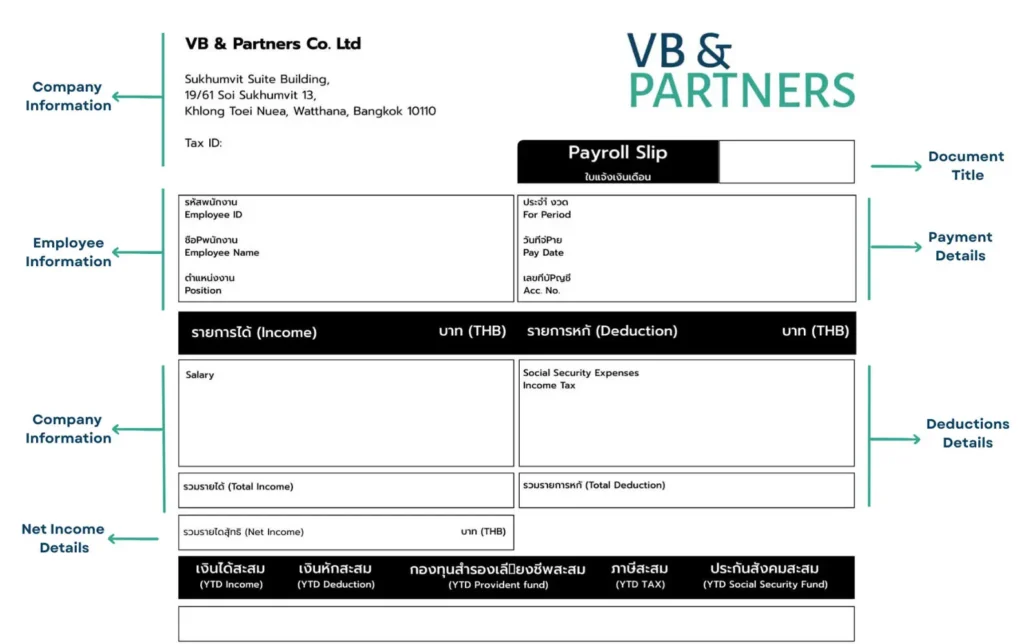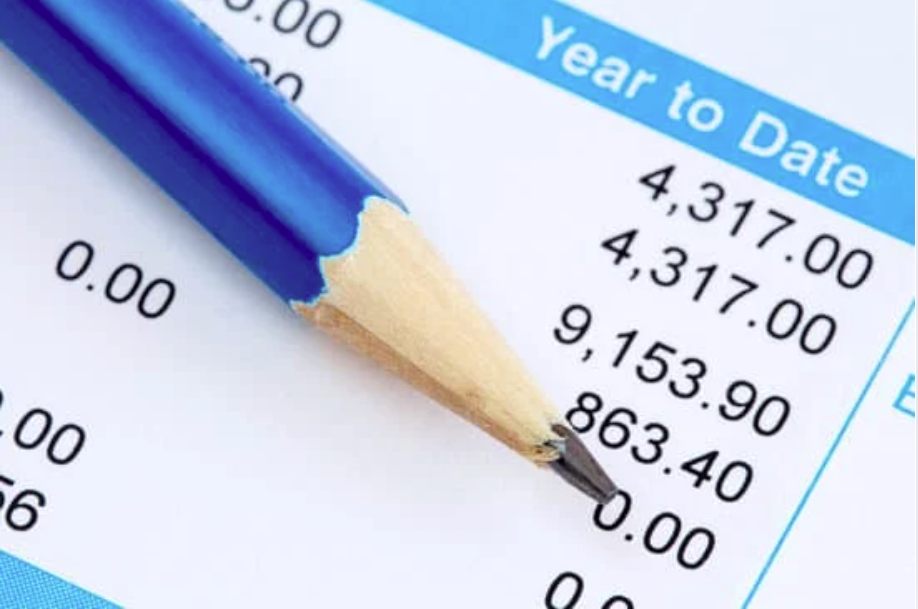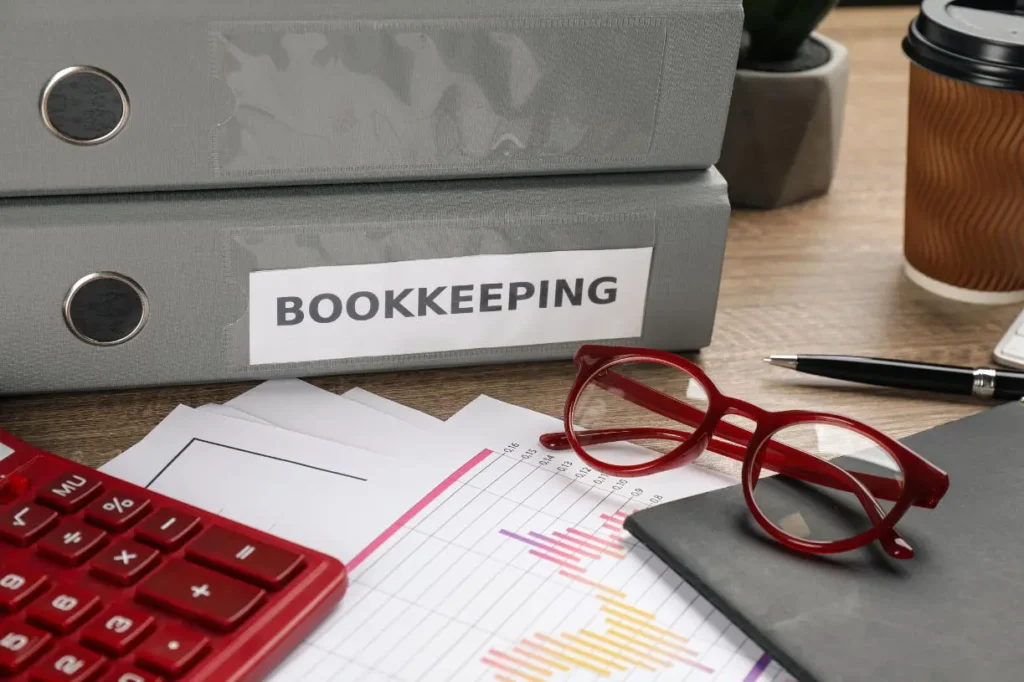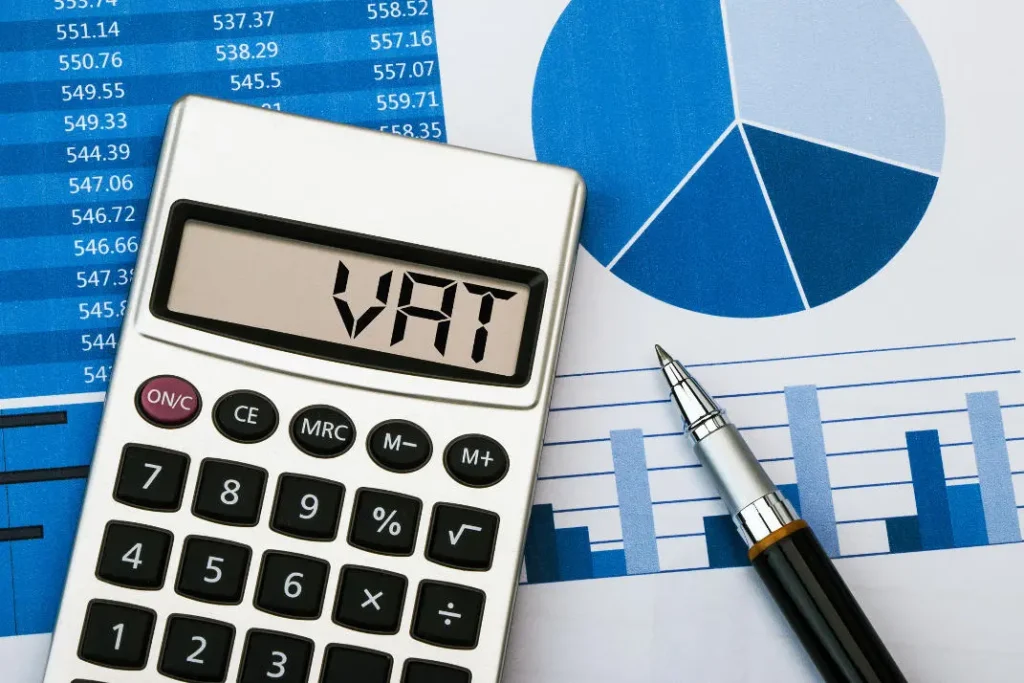A payslip is both a record of payment and a financial document that outlines how an employee’s monthly earnings have been calculated. Whether issued in paper form or digitally as an epayslip, it includes essential information such as salary, bonuses, overtime, and any deductions like tax, social security, or provident fund contributions.
Employers are legally required to provide their staff with a payslip or epayslip. In this guide, we’ll explore what a payslip is, the growing use of epayslips in modern workplaces, and the required information every employer must include before issuing it to their staff.
Key Points
- A payslip or epayslip is an official document that records an employee’s earnings, showing salary calculation including bonuses, overtime, and all deductions.
- Employers in Thailand are legally required to provide this document to employees for each pay period and must keep payroll records for at least 7 years.
- Required information includes company details (name, address, Tax ID), employee information, pay period, payment date, all income sources, and all deductions.
- It must show the net income summary, the actual amount received by the employee after all deductions have been applied.
- Accepted documents can be issued in either physical or electronic format (such as an epayslip in PDF format), with electronic delivery becoming more common.
What is a Payslip?
A payslip (also known as a pay slip) is an official document provided by an employer that states an employee’s final pay (after all relevant deductions) for a particular payment cycle, usually monthly.
Required information includes a breakdown of the employee’s income, including details such as the base salary, bonuses, commissions, and overtime, along with any deductions like withholding tax, social security contributions, and provident fund payments. The final amount shown is the net income the employee receives after all deductions have been applied.

What are the Legal Obligations for Payslips in Thailand?
In Thailand, employers are legally required to provide employees with a detailed breakdown of their salary for each pay period (usually monthly). This breakdown can be a physical document issued to the employee or an electronically prepared epayslip.
As per the Labour Protection Act, employers are also required to keep payroll records, including payslips, for at least 7 years. Salary must be paid at least once a month, and payment methods (cash, bank transfer, or cheque) should be agreed upon with the employee.
What Information Should be Included?

Required information that should appear includes the following:
- Title: Indicates it is a payslip (e.g., “Pay Slip”).
- Company Information: The company’s name, address and Tax ID should be included.
- Employee Information: Employee ID/number, name, position/job title, and department.
- Pay Period: Identifying the current payment cycle or payment date range such as 1-31 May 2025.
- Payment Date: Date of payment for the salary.
- Sources of Income: Identification of all the earnings for the payment period such as salary, commission, bonuses, overtime, allowances, or other relevant earnings..
- Deductions: Details of all deductions from your total salary such as social security contributions, withholding tax or provident fund contributions.
- Net Income Summary: Displays the actual amount the employee receives for a specific pay period after all deductions have been applied.
Can an Electronic Epayslip Be Used?
In Thailand payslips can be issued in either paper or electronic form as an epayslip. Traditionally, Thai companies issued these documents using carbon paper forms with perforated edges, which could be ripped off in order to read the payslip.
Nowadays companies often choose to issue an epayslip in an electronic form, such as PDF. This is a much more efficient and cost-effective approach to issuing payslips.
Who Prepares the Payslips?
Preparing these documents is usually part of the payroll service provided by your accountant firm. As part of our payroll service, we calculate the salary of each employee, prepare the salary summary for confirmation to client, and then process the payment of the withholding tax, social security contributions, and issue payslips to the employees. Many companies choose to outsource payroll services not only for convenience but also for confidentiality, ensuring salary information of individual employees is not known internally within the company.
Disclaimer
This information is provided for general informational purposes only and is not legal, tax, or financial advice.





